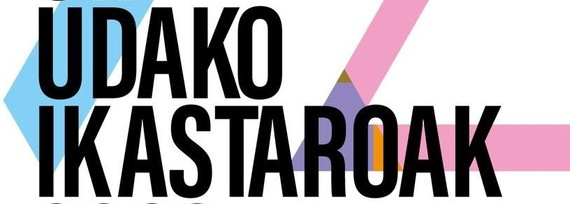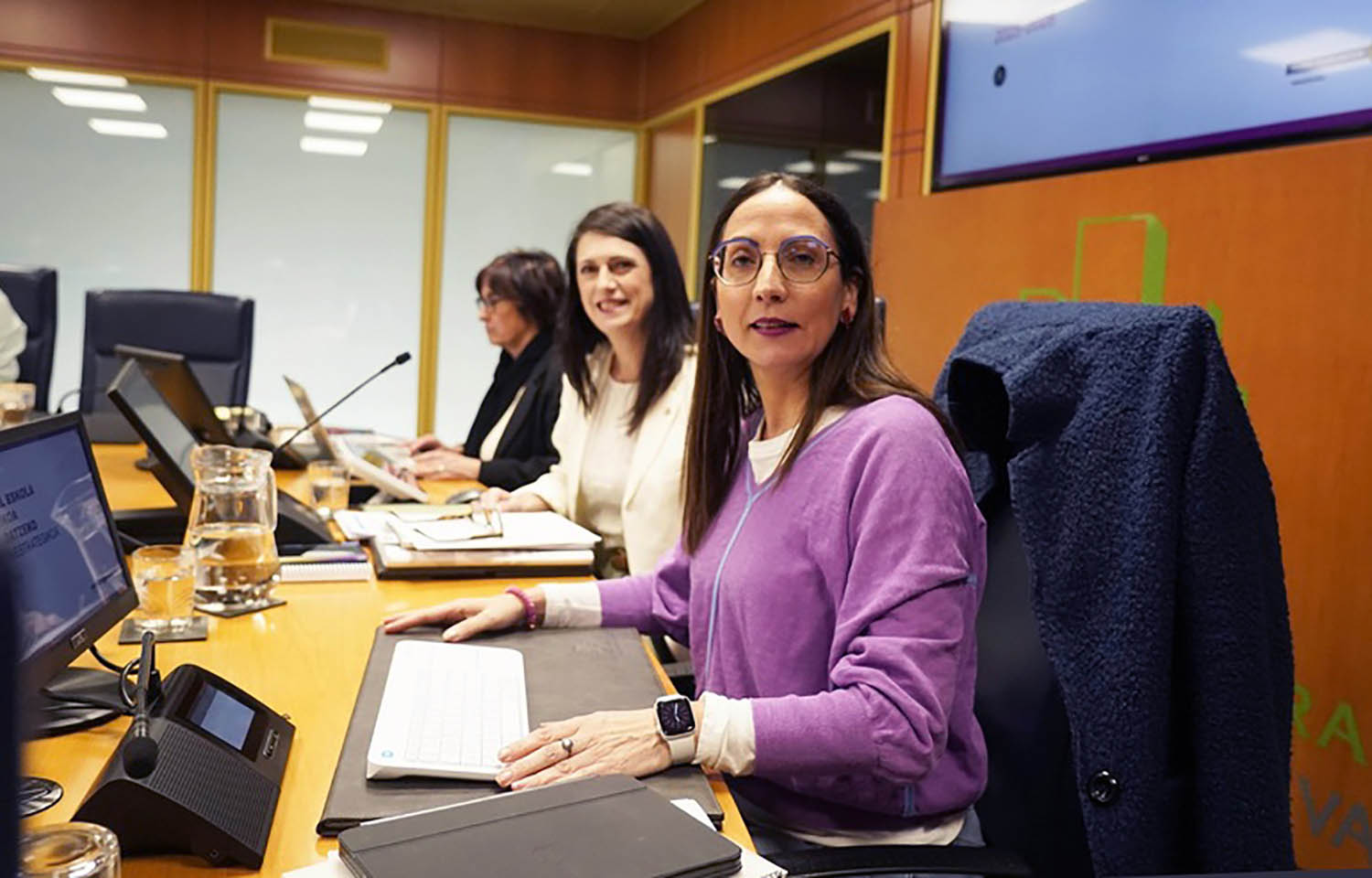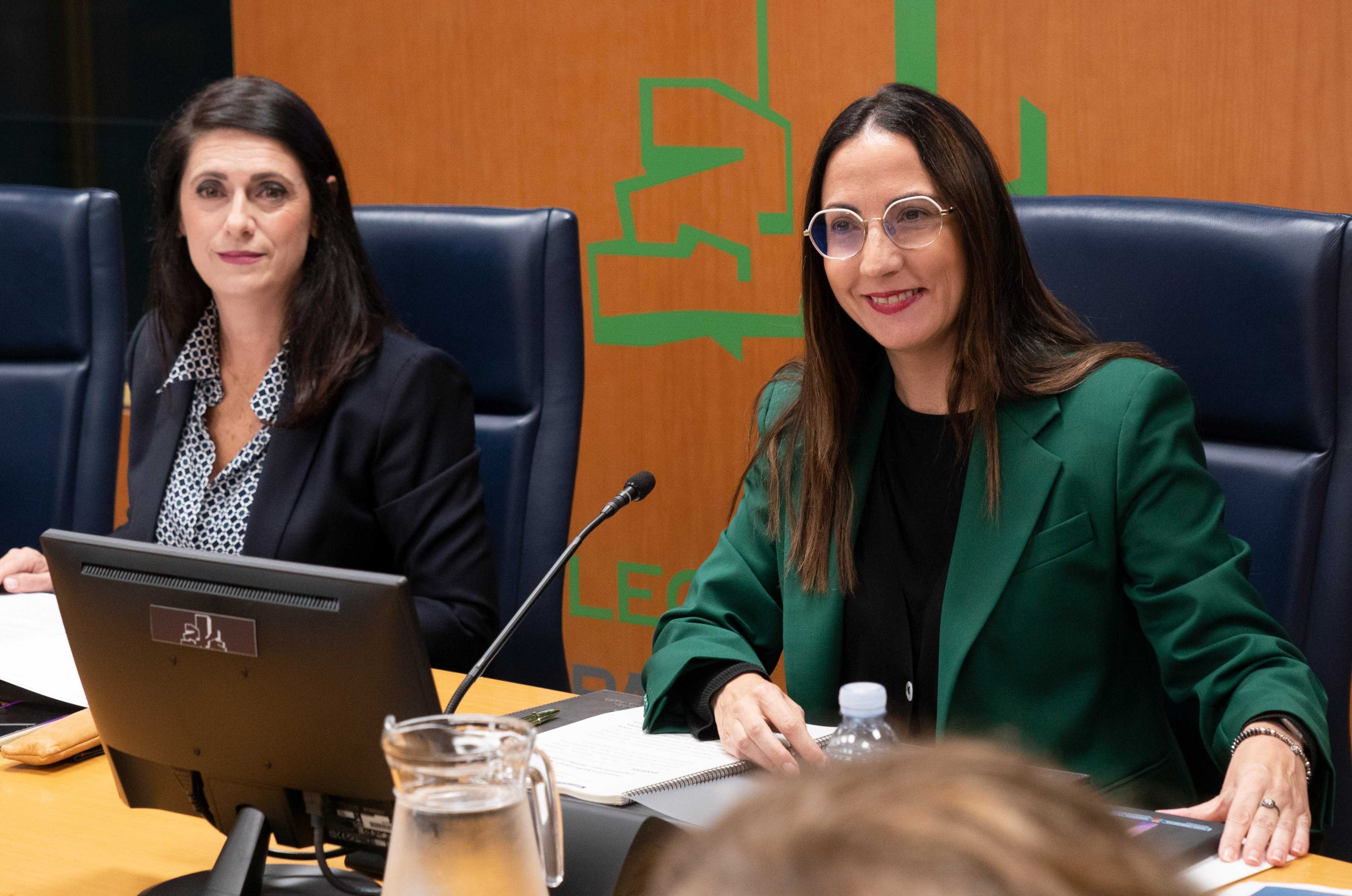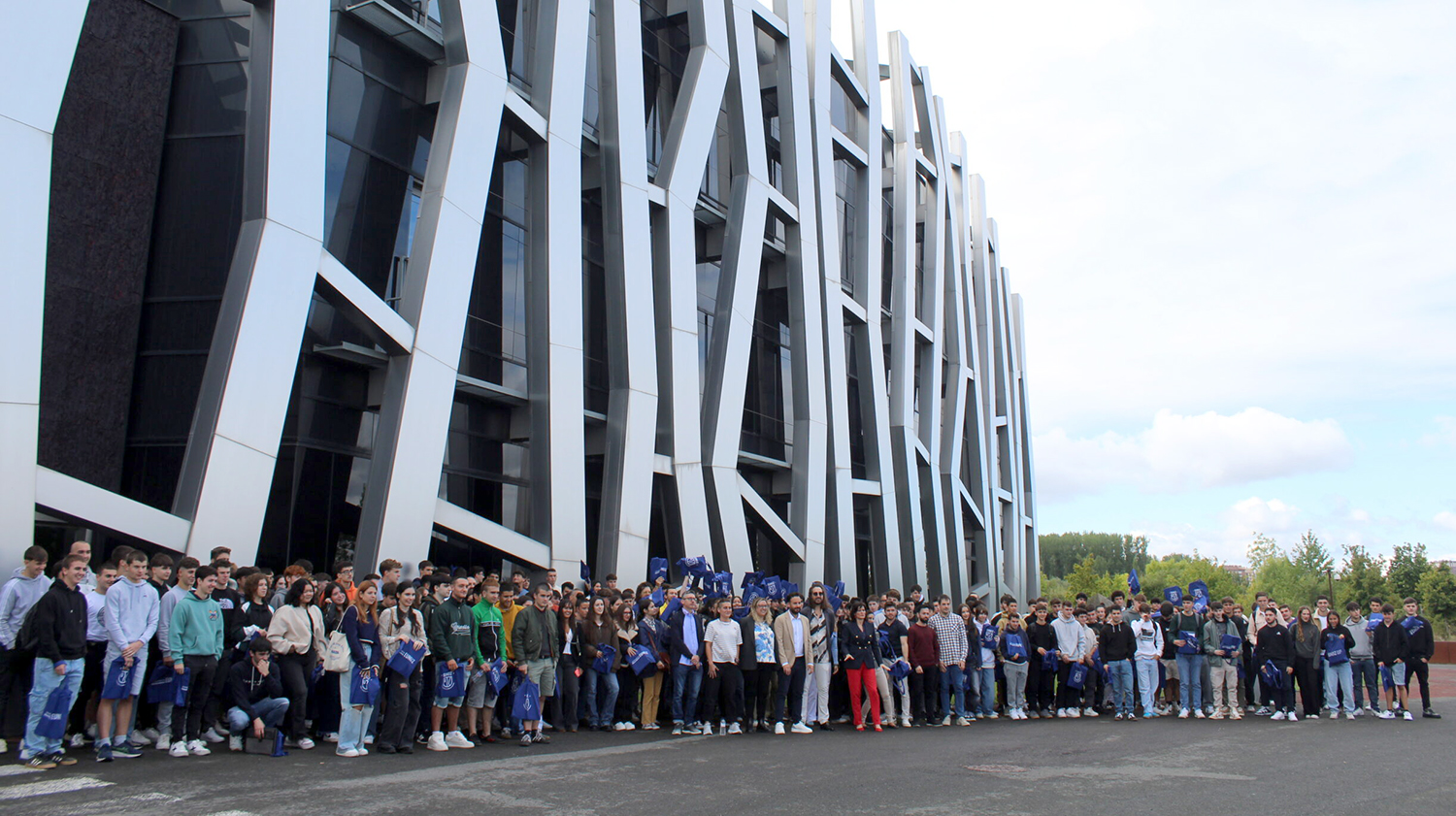Harnessing some technology in education is good, but harnessing a lot doesn't help
- No, new technologies do not improve the learning process, they can even worsen, according to many studies and experiences received. Faced with the vendors that technology will revolutionize pedagogy fascinated by innovation, promoting the critical spirit with technology and using technology with meaning is the message that Pablo Garaizar, professor and expert in the field, wants to convey.
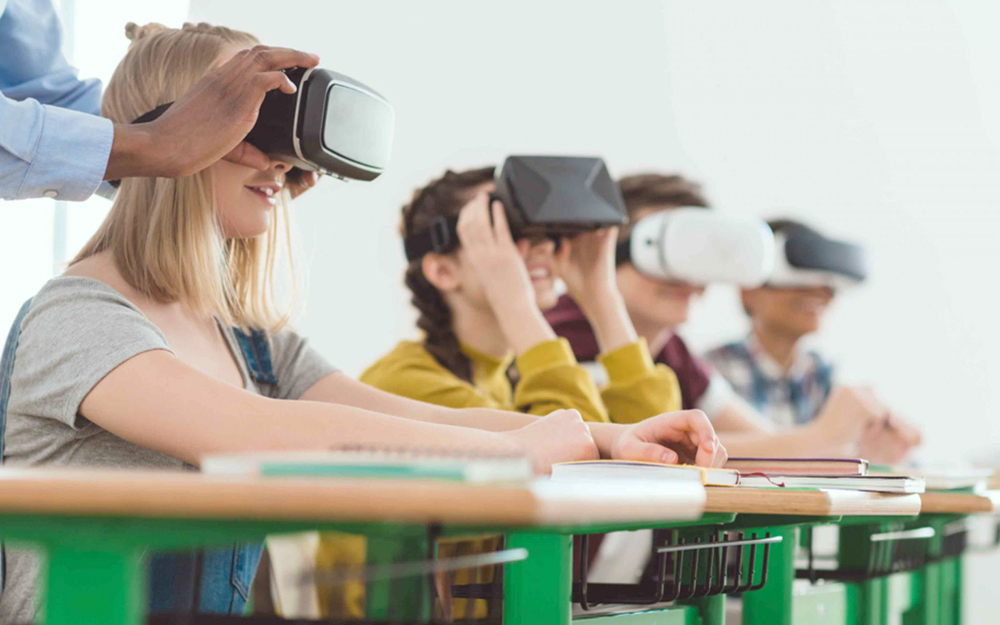
Often, technology reaches a field and provokes a radical transformation, and there are people who believe that this is going to happen in education, that it is going to break the reality in it to create something new.” With these words, Pablo Garaizar began his speech. Professor of Technology in Deusto and we have brought his participation in the congress of Education Tests. He has tried to answer the big question: Is technology really revolutionizing education?
Online courses, Google and Microsoft school packages, realities – laboratories – virtual, the possibility of combining artificial intelligence for personalized learning with massive data from the educational world, 3D printers, drones, robots… People are convinced that thanks to technological advances many new things can be done in teaching, but are they really revolutionizing technology? “If you ask the professor who uses drones in class, he will surely tell you yes, but if we analyze the evidence, the answer is different: not so much,” says Garaizar.
To read, paper or screen?This evidence
is based on numerous studies by the professor. For example, it talks about the tests that look at the difference between reading on paper or on screen. According to all the studies carried out in the last ten years, the role is “the winner”. And interestingly, in these ten years, the difference has been growing in favor of paper. That is, although more and more digital natives, paper reading is still better, with more and more difference than the screen. “When we read on the digital screen we are talking about a device that normally serves many other things, ‘many things’ make reading difficult or come into play,” explains Garaizar. Another fact that may surprise us is that when we have little time, when we're in a hurry, the research says we do the reading much better on paper than on screen. And we also read the informative texts much better on paper, for example, instructions and manuals. In narrative texts, where the details are not so important, we read in a similar way in one or the other.
The less technology, the better mathematical exercises are performed and the better the abstract thinking is developed.
Online time and socioeconomic level
Students, Computers and Learning. The research Making the Connection (OECD, 2015) relates PISA etsamina, the technology in the students’ homes and classrooms and the time they spend online. And another factor that comes up is the socioeconomic reality of these students. “The socioeconomic level very conditions the student’s educational trajectory, and sometimes they sell us the success of a new methodology, but perhaps the success is not because of this methodology, but because they have made the initiative in a center with a certain profile (a center with students of high socioeconomic level, with classrooms of low ratio…). The same with online time: you can not measure the time the student spends by looking at the screen without more, but the time the student spends by looking at the screen. And according to the studies, the socioeconomic level is higher or lower, the screens tend to be used for different things,” she explained.
But, despite being the same socioeconomic level, is it worth investing in technology to improve education? “According to all the studies in the report, technology is a bit good, but many technologies do not help, and can even sometimes make the situation worse.” In the graphs of the report, Garaizar explained that the image of the bridge is a common practice: you start investing in technology and you improve the results, but the more you invest, the worse the performance of the students.
Finally, the research in the report takes into account the field of mathematics. And the bottom line is that mathematics is also done better on paper: the less technology, the better you do mathematical exercises and the better you develop abstract thinking. In this case, the rapporteur addresses a personal example: “At the University, the professor Amiga de Calculus usually tells me that the new generations are not able to concentrate on exercises with many leaves and with a development greater than 20-30 minutes. They are very good at doing multi-response tests, but they struggle to sit down and make coherent development and that technology is not helping.”
"The mistake of pedagogy is that we like the brightest light, but then they'll put a brighter light in front of us and in the end we don't focus on anything."
What has happened to the introduction of new technologies in school?
Google, Microsoft and Apple offer a wide variety of offers for the world of education and have famed Chromebooks, iPad and School Work Packages. But these programs in general have not worked well, and Garaizar has put more research on the table to prove it. According to the work that analyzes the impact of the School 2.0 program on the Spanish state, tablets and laptops had a negative effect on mathematics. The moderate use of the new technologies was positive, but attentive that for the authors of the study the use is moderate once or twice a month, and from there no positive effects were found. In the light of similar programmes at the international level, another work says that the Uruguay Programme (Ceibal Plan) had no positive effects either in mathematics or in reading. In China (in the One Laptop Per Child OLPC program), strange positive effects were detected: that students saw less television, that they had better self-esteem and were trained in computer use. In Ecuador (also the OLPC program), mathematics improved somewhat, not in reading, and in Colombia (OLPC) it did not improve in any competition. In Catalonia (EduCat program) they observed that the project had a negative effect on the students: the results of the centers that were included in the program were worse than those of the centers that were not included, and the study took into account all the other parameters, that is, that this conclusion is not because the centers that were worse were included in the program. In Catalonia, in addition, another significant effect was detected: the negative consequences of the introduction of technology had a greater impact on boys than on girls. “To put it mildly, the kids lost their attention more easily, and in some cases the difference was great.”
Nor does it help to bring the technology home to perform the tasks entrusted to the school, according to Pablo Garaizar. He mentioned three other studies conducted in Romania, Peru, and California.
And the professor has also dedicated his space to the mobile phone: according to several studies, the use of the mobile phone is related to the loss of cognitive performance of adolescents. There is still no study demonstrating the mobile phone and the loss of academic achievement as a result of the cause, but a great interrelation has been detected between the two.
It is best to follow the latest trend However, those who believe that technology is very beneficial for education are not few, and have arguments to justify the poor results of research: that many teachers are not yet prepared, that the materials are not adapted, that there are still no
standardized tests to measure what is improved thanks to technology…
“I’m a professor of technology and I love technology,” says Pablo Garaizar, but I don’t think launching sticks of technology in class is a solution, even if the teacher is trained. I recommend to the teachers: ‘Instead of being in the last fashion, be in the last’, because bringing the one at the top of the class is fighting constantly with what is not yet tested, and attending to the last one involves taking into account and using technology, not dismissing it, but without flipping with every new thing they bring out. Because pedagogy often has that mistake: we're seeing the lights and we like the brightest light, but then they're going to put a brighter light in front of us, and in the end we don't focus on anything."
"In concerted schools, many parents often want to introduce technology, and as the client is always right, there is pressure to incorporate technology into school activities."
Txin-txin, txin-txin, the sound of money So
why are there so many people pushing and pushing people to introduce technology into the classroom? Garaizar is clear because it is a sector that can bring great economic benefits. “Technology companies don’t go directly to the centers, they send teachers, and these teachers insist that they are teachers, but they are basically commercial companies that come to sell some technology. On the other hand, in concerted schools, many parents often want to introduce technology, and as the client is always right, there is pressure for them to incorporate technology into school activities.”
At the end of the session, the professor re-emphasizes his love for technology. “I’m not against technology and I think you have to learn technology, but without forgetting that we also have to have a critical spirit in this field and that it can potentially have very negative consequences, as potentially beneficial if used with your head.”
We have had to endure another attack on our language by the Department of Education of the Government of Navarre; we have been forced to make an anti-Basque change in the PAI program. In recent years, by law, new Model D schools have had to introduce the PAI program and have had... [+]
Public education teachers have the need and the right to update and improve the work agreement that has not been renewed in fifteen years. For this, we should be immersed in a real negotiation, but the reality is deplorable. In a negotiation, the agreement of all parties must be... [+]
Lehengai anitzekin papera egitea dute urteroko erronka Tolosako Lanbide Heziketako Paper Eskolako ikasleek: platano azalekin, orburuekin, lastoarekin, iratzearekin nahiz bakero zaharrekin egin dituzte probak azken urteotan. Aurtengoan, pilota eskoletan kiloka pilatzen den... [+]
Garai kuriosoak bizi ditugu eta bizi gaituzte, zinez. Hezkuntza krisian dela dioten garaiak dira eta, gutxien-gutxienean, aliritzira, ba aizue, 2.361 urte ditu gaurgero boladatxoak.
Ez zen ba debalde joan Aristoteles bere maisu maite Platonen akademiatik lizeo bat muntatzeko... [+]
















